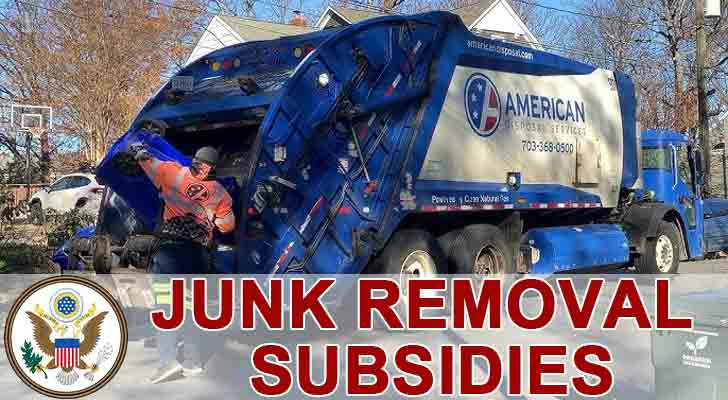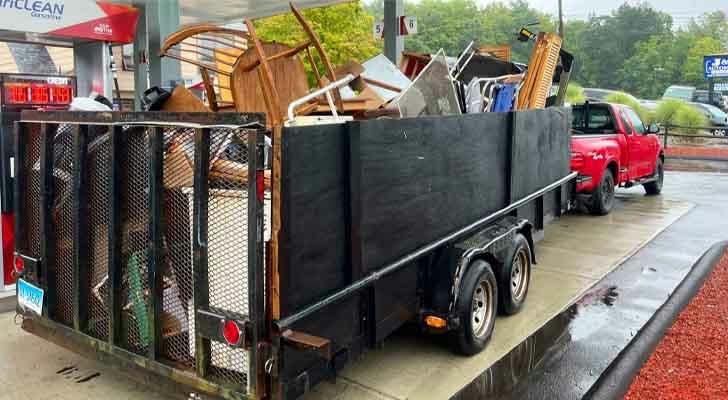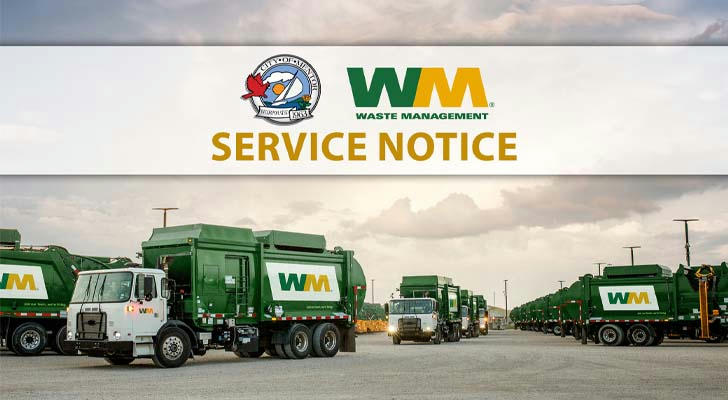Making Waste Management Easier: How Government-Supported Trash Subsidies Are Helping Americans
Dealing with trash disposal can be costly and inconvenient for many households and businesses. However, government-supported waste removal subsidies are making it easier for Americans to manage trash efficiently while saving money. These programs are designed to encourage responsible waste disposal, reduce landfill waste, and ensure cleaner communities nationwide.

How the U.S. Government Is Supporting Waste Removal
The federal government, along with state and local agencies, offers various subsidies and programs to help individuals and communities cover the costs of trash collection and disposal. These initiatives aim to:
- Reduce waste accumulation by making trash pickup more affordable.
- Support low-income households with discounts on garbage collection fees.
- Fund community-wide waste management improvements through grants and infrastructure investments.
One major initiative is the USDA’s Water & Waste Disposal Loan & Grant Program, which assists rural communities in developing waste removal infrastructure. (USDA Official Site)
Additionally, the EPA’s Solid Waste Infrastructure for Recycling (SWIFR) Grant Program provides funding to enhance waste collection services and landfill management. (EPA Grant Program)
Who Can Benefit from Waste Removal Subsidies?
Government-supported waste removal programs are available to a wide range of individuals and organizations, including:
- Homeowners & Renters: Some cities offer discounted garbage collection fees or low-cost bulk waste pickup.
- Municipalities & Local Governments: Federal and state grants help improve waste removal services in communities.
- Businesses & Nonprofits: Waste reduction and disposal support programs help companies manage trash sustainably.
- Rural Communities: Special funding is available for towns with limited waste removal infrastructure.
To check eligibility, residents should visit their city or county’s waste management website.

How to Apply for a Waste Removal Subsidy
Individuals and municipalities can take the following steps to access government-supported waste removal programs:
- Check Local Subsidy Programs: Visit local or state waste management agency websites to find available financial assistance.
- Gather Required Documents: Some programs require proof of residency, income level, or waste removal expenses.
- Submit an Application: Applications are usually processed through government websites or local municipal offices.
- Approval Process: After review, successful applicants receive either a direct subsidy, discounted waste collection rates, or grant funding for community projects.
For federal grants, local governments can apply through agencies like the USDA or EPA.
Real-Life Impact: How Americans Are Benefiting from Waste Removal Support
Case Study: A Senior Citizen in Florida Gets Help with Trash Collection Fees John Peterson, a retired veteran from Orlando, struggled to afford the rising costs of garbage collection. Through his city’s Senior Discount Waste Removal Program , he now pays 50% less for trash pickup. It’s a relief knowing I don’t have to worry about my garbage piling up, he says.
Case Study: A Neighborhood in Detroit Reduces Illegal Dumping
A Detroit neighborhood suffering from illegal dumping applied for an EPA waste removal grant. With funding, the city improved trash collection services, added new garbage bins, and reduced illegal waste disposal by 40%. (Detroit Waste Management)
Case Study: A Rural Texas Community Builds a Waste Removal Station A small town in Texas used USDA waste disposal funding to construct a local waste transfer station. Previously, residents had to drive over 20 miles to dispose of trash, but now they have a convenient local drop-off site that improves cleanliness and sustainability.

Why These Subsidies Matter
Waste removal subsidies provide significant benefits to individuals and communities:
Lower Costs – Reduces the financial burden of trash collection for households and businesses.
Cleaner Communities – Improves sanitation and prevents illegal dumping.
Environmental Protection – Encourages responsible waste disposal and recycling.
Public Health Benefits – Helps prevent waste buildup, which can lead to health hazards.

Final Thoughts: Keeping America Clean with Government Support
Proper waste removal shouldn’t be a financial burden. Through government-supported programs, Americans can access affordable and reliable garbage collection services that contribute to cleaner and healthier communities.
For more information on how to access waste removal assistance, visit:
By leveraging these resources, Americans can ensure better waste management while saving money and protecting the environment.
